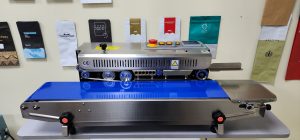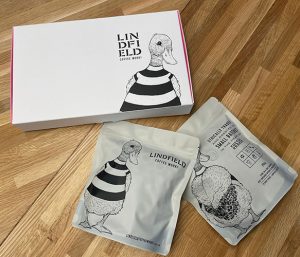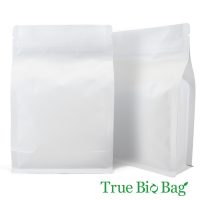Eco Friendly Compostable Bags
Our Compostable Bags can compost in less than 90 days in commercial composting facilities. They are made entirely with certified materials after the EU standard EN13432.
If you are looking for eco-friendly packaging with a Kraft paper finish, this is the best you can get. Alternatively, we also offer Recyclable Packaging that comes with a Matt finish and plastic-based material. The recyclable packaging is entirely composed of LDPE which makes them a recyclable level 4 mono-material bag.
If you are interested in custom printing don’t hesitate to contact our team.
Frequently asked questions
Compostable materials are designed to be composted and not recycled, so they are unfortunately not recyclable in the plastic waste stream. Even though commercial composting is only available kerbside in some jurisdictions, this is changing rapidly.
Industrial composting takes place as an industrial plant, where temperature, moisture and soil bacteria levels are tightly controlled. If you home compost, you will have much less control of the process, and people in say Northern Sweden will not be able to compost at all for large parts of the year. Many suppliers offer home compostable materials, however, this means that barrier properties and add-ons such as valves for coffee are compromised away. At the same time, people only rarely home compost, for instance only 3% of British households home compost. We have therefore chosen to focus on industrial composting, so a compostable bag should be disposed of in the food waste recycling stream.
All our compostable materials are certified compostable, so they have been tested for biodegradation. They do not leave micro-plastics behind.
Dispose of in the food waste recycling stream where this exists.
All the materials out laminates are made for are as a minimum certified EN13432 industrially compostable.
EN13432 is the EU standard for compostability. Products certified under this standard must meet stringent requirements for biodegradability, understood as the capability of the packaging material to be metabolically converted into carbon dioxide; disintegradability, understood as fragmentation and loss of visibility in the final compost (absence of visual pollution); and Absence of negative effects on the final compost, meaning that the compost should be good for growing food in.
This requires a complex answer. They do not contain what most understand as plastics, however PLA, Bi-PBS, NKME are all per definition plastics, even though they are generated from non-fossil sources. They are compostable and degrade into CO2 and water only, not leaving any micro-plastics behind.
EN13432 requires the compostable plastic to disintegrate within 12 weeks and completely degrade within 6 months. This means that at least 90% of the plastic material will be converted into CO2 within this period. The last up to 10% will have been converted into water and valuable compost.
Industrially compostable materials will only degrade under certain conditions, such as those found in an industrial compost heap. In nearly all other situations the materials will not degrade.




